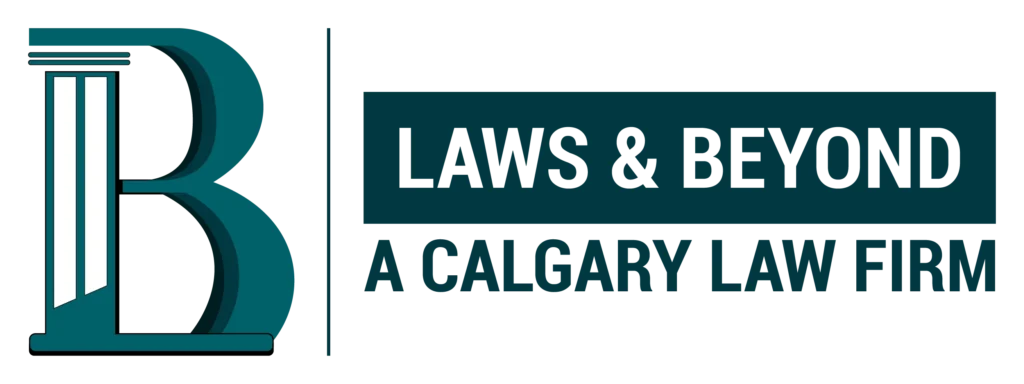There are numerous types of orders that you can apply for to protect yourself from any person who might cause you harm. The type of Order sought will depend on the circumstances of your situation and the form of protection needed.
This article will highlight distinctions between restraining and emergency protection orders. You will also learn about exclusive possession orders, Queen’s Bench protection orders, and peace bonds.
Emergency Protection Orders
Under Alberta’s Protection Against Family Violence Act, any form of intimidation or harm caused by a family member against another is considered family violence. If your spouse or partner harms or threatens you or the kids, you can seek a protection order against them.
Family violence also covers sexual abuse among family members. To be granted this Order against a partner, you must prove to the Court that the defendant has either been physically violent or has made threats. That means you will need to show that there is an imminent danger of further violence or harm and that you or your children are afraid for your safety.
Protection orders are often issued against family members. More often than not, it will be someone you are either married to or one you are living with in an intimate relationship. In other cases, it could be the other parent to your child or a former partner, even if you are no longer living together or married.
An emergency protection order can also be issued to other family members residing in your household, including brothers and sisters. In crisis or emergencies, an Emergency Protection Order (EPO) can be obtained by a family member, or by police on your behalf, for you to remain in your home and have the offensive partner removed.
What Will an EPO Achieve?
The order seeks to set boundaries so that you and your children can feel safe from the abusive family member or partner. For instance, an emergency protection order can provide that the abusive partner should not get near your home, the children’s daycare or school, and your place of employment.
The order can also prohibit the family member or partner from coming within a specific distance of you or your children, no matter where you might be in the Province of Alberta.
Usually, the abusive family member will get served with a copy of the EPO by the police.
After obtaining an EPO from the Court, it has to be reviewed by the Court of Queen’s Bench within nine working days. The Order will come with its review date and time. The Queen’s Bench can revoke or replace the EPO with a Queen’s Bench Protection Order.
It is in your best interest that you attend Court for the review regardless of whether or not you want the emergency protection to be continued.
Queen’s Bench Protection Order
A Queen’s Bench Protection Order often arises following the review of an EPO. That notwithstanding, you can still apply for a standalone Queen’s Bench Protection Order. Such an application can only happen after serving your spouse or partner copies of the application’s documents.
In addition, this type of Order is only viable when your situation does not count as an emergency. Queen’s Bench Protection Orders can be sought against family members who have committed family violence against you or your children.
Making a Queen’s Bench Protection Order application that suits your unique needs and family’s situation is easy. The Court has the liberty to make whatever terms it deems necessary to ascertain that you and your loved ones are safe.
A Queen’s Bench Protection Order can instruct the other party to do any of the following:
❖ To keep away from your home, your children’s school, or your place of business
❖ To grant you exclusive occupation of your joint home for a specified period of time
❖ To not contact you or other family members in any manner
❖ To grant you temporary possession of specific properties such as keys, bank cards, or vehicles
❖ To compensate you for the costs incurred due to the family violence
❖ To receive counseling
❖ To protect your property
❖ To have weapons seized and removed
❖ To call the police to remove the family member if need be
The Queens’ Bench will decide how long the order will continue for up to one year. However, extending the Order for a longer timeframe is possible if you apply for a time extension before the current time expires.
A Queen’s Bench Protection Order does not affect rights to ownership or title held by parties involved.
Restraining Order
You can apply for restraining orders against persons who have, by their words or actions, made you scared for your safety. Applications for restraining orders can be made on an ex parte basis, which means without notice to the abusive person if you find yourself in a crisis.
The application for a restraining order can also be made on notice to the abusive person if the situation does not count as an emergency. The Court will hear your application to Queen’s Bench.
Where the Order is made ex parte, its review date is set in advance. During the review, the abusive partner or family member will be given a chance to attend Court to defend against the pending restraining order.
It is also worth noting that not in all situations Alberta courts grant restraining orders. As such, it is imperative that you speak to experienced Alberta family law attorneys to find out whether restraining orders are available in your area.
How Long Does an Protection Order Lasts?
The EPO order is a kind of restraining order does not last forever. As already mentioned, the Order will get reviewed within nine days of being granted. During the review hearing, each party is expected to show up in Court to state their case.
The EPO will likely get canceled if the applicant or their attorney fails to appear for the review hearing. If you want an EPO extended, you should consider enlisting the services of experienced Alberta family law lawyers to help ascertain that you have the necessary evidence for the EPO to be extended. Your lawyer can canvass your case for the EPO to be extended up to a year.
Similarly, if you want to have the protective order extended, Alberta lawyers can help defend your rights. You must note that restraining orders are legal and breaching them can attract severe consequences.
When Is a Restraining Order Appropriate
Alberta courts suggest that one should only request restraining orders and EPOs in severe situations when there is a real fear for your safety. If the other person is just being a nuisance, you should first try less aggressive measures like blocking them or trying to avoid contact.
However, you must take the appropriate legal action if push comes to shove. Don’t hesitate to call the police when there is immediate impending danger. When unsure how to handle the ordeal, consult Alberta family law attorneys.
Exclusive Possession Orders
The Family Law Act and the Alberta Family Property Act (formerly Alberta Matrimonial Property Act) contain provisions for restraining spouses from accessing jointly owned homes or using the property bought (or rented) when the couple lived together. This type of restriction is referred to as an Exclusive Possession Order.
The applications for Exclusive Possession Orders are made in the Court of Queen’s Bench. However, this is a temporary order intended to establish who can use the property or home until the two parties agree on how the property will be divided.
It would help if you understood that an Exclusive Possession Order does not serve to give ownership of the property or home in question. There are several restrictions on who can apply for this type of Order.
Under the Family Property Act, an Exclusive Possession Order is only available to previously married partners or Adult Interdependent Partners (AIP). Under the Family Law Act, the orders are only available where the application is combined with an application for spousal or child support.
If you want to apply for an Exclusive Possession Order, it is essential that you consult with professional family law lawyers.
Peace Bond
The Canadian Criminal Code offers provisions to protect you if you are afraid for your safety. This often applies to couples or two people with previous interactions, leaving one person fearful of being harmed by the other.
Peace bonds are commonly used to resolve criminal charges. For instance, if you have been charged with assault, the Crown can be willing to drop the charge in return for you (the accused) to enter into a Peace Bond, which requires you to have no contact with the victim for a specific period.
Always make sure that you preserve your copy of the court order and create copies for your children’s daycare and school. If the restricted person tries to approach you or your children, you can call the police, and the order will make it easier for the law enforcement officers to make an arrest.
If the restricted person violates the terms of the court order, they are liable for contempt of court, and they can either be warned, imprisoned, or fined. Violations of Peace Bonds are considered a Criminal Code offense in Alberta.




